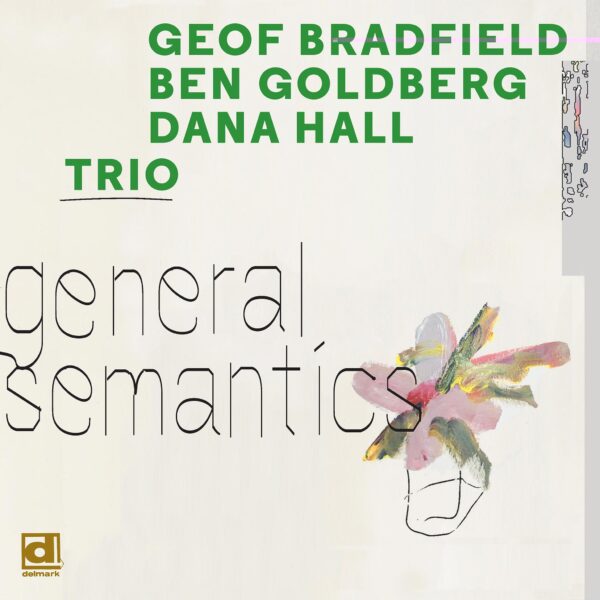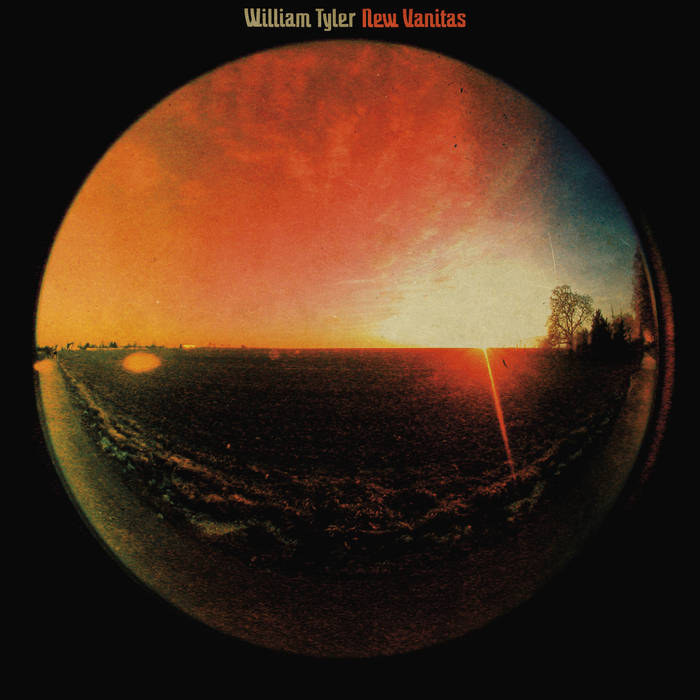
Geof Bradfield / Ben Goldberg / Dana Hall Trio "General Semantics (Delmark)"
The collaborative trio of Ben Goldberg (clarinet, contra alto clarinet), Geof Bradfield (soprano and tenor saxophones, bass clarinet), and Dana Hall (percussion) explores new directions on General Semantics. Their Delmark Records debut features original music by the trio as well as unique interpretations of Duke Ellington, Cecil Taylor, and Hermeto Pascoal. The unusual instrumentation-especially the lack of a bassist- enables the musicians to transcend traditional instrument roles of accompaniment, improvisation, and interaction and create music that embraces form and harmony alongside freedom and spontaneous improvisation.

Sidi Touré "Afrik Toun Mé (Thrill Jockey)"
Sidi Touré is one of Mali’s most enduring and buoyant artists. As a master of Songhaï Music, Touré has been lauded for his dynamic and emotive voice both as the leader of the Songhaï Stars and on his own. Following the boisterous full band of arrangements of 2018’s Toubalbero, Afrik Toun Mé is an album of intimate comforts and subtle beauties. Touré, joined by virtuoso guitarist Mamadou Kelly and calabash player Boubou Diallo, blends parables and tales of inspiration that honor courage and resilience in the face of trial and tragedy. The spare and arresting songs of Afrik Toun Mé (in English, Africa Must Unite) captures the familiarity and personal touch of life’s small communions with the sincerity and poise that are indelible to Sidi Touré.
The lean recordings throughout Afrik Toun Mé retain the innate beauty and hopefulness of Touré’s music. Trading melodic guitar phrases and polyrhythmic gestures ripple around Touré’s dulcet singing like the swing and slosh of gentle brooks. Album centerpiece “Tchaw Yan” (roughly “Knowledge”) emphasizes how paramount Touré sees the pursuit of science is to the advancement and improvement of Africa. Touré says: “Science is the driver of progress. Today everything we see is thanks to scientific progress and to arrive at scientific progress people must go get an education. If Europeans were able to colonize Africa, it was because of technology. If China has become a world power, it is also because of technology and education. They started by agricultural auto-sufficiency, then healthcare and finally scientific progress – airplanes, computers, mobile phones, etc. And so he who is not educated, is in total obscurantism.” Touré highlights individual growth as well as communal with stories of virtue like “Bortchin” (A Noble Man) and sacrifice like “Guara Tcha Jina” (The Rooster’s First Crow). For Touré, this progress is critical to the unification of Africa: “Look at the buzzing of this beautiful Africa, which slept before like a fish in water, slept like a doe wandering in the bush. Now troubled by fishers, threatened by hunters, she has woken up. Africa must unite as so many luminaries have already said: Bob Marley, Alpha Blondy, Tiken Jah Fakoly… Doctor Kwame Nkrumah said Africa must unite or it will perish. We need African unity, at whatever the cost.”
Touré has been faced with the many challenges that come with limitations on communal and social gatherings during the 2020 pandemic. As one of countless artists around the world severely impacted by these limitations, his nearly daily performances have been restricted for months on end. The modest acoustic trio on Afrik Toun Mé captures the essence of his passionate performances, Touré delivering his encouraging and urgent messages as if plain spoken to friends gathered around a fire or over a cup of tea. In the face of turmoil both local and global, Sidi Touré’s Afrik Toun Mé is a work of pure radiance.

Polyvinyl Records "Exquisite Corpse (Polyvinyl)"
From Polyvinyl:
2020 has been an intense year by any standard, with the first weeks of the global pandemic giving most of us feelings unlike anything we’d experienced before. Quarantine lockdowns and hovering dread shifted the fabric of time in a way that’s ongoing, but was at its most vivid in those early days when a new reality was sinking in. Before people eventually adapted and started using the newly mandatory downtime to learn new languages and bake bread, hours lurched by as the world sat restlessly indoors. All the shows were slowly cancelled one by one, the tours and recording sessions were scrapped, hangs and practices just stopped happening. Everything was on hold indefinitely, time lost meaning, every day felt unreal.
During the first days of lockdown, Rainer Maria’s Kaia Fischer came up with the concept of Exquisite Corpse by meditating on their perspective of the newly unfolding weirdness they and so many of their creative friends were going through. Obviously a deadly pandemic was wrought with negatives, and those in particular to independent music scenes were especially devastating. But could there be another side to what felt so all-consumingly terrible? “We know what the pandemic isn’t good for,” Fischer said, “but let’s find out what it is good for.”
Searching for silver linings in the earliest days of lockdown wasn’t easy, but one idea led to another. It began with the realization that every Polyvinyl artist now had a completely clear schedule at the same time. They were also mostly sitting around waiting for the storm to pass, in different states of boredom, anxiety, worry and malaise. Logistically speaking, there might not be another time when pretty much everyone was available for a collaborative project and needed something to occupy their frazzled minds. A round of emails went out explaining the project and inviting members of the Polyvinyl roster to participate. Eleven teams of four or five musicians were assembled more or less at random, bringing together artists that had in many cases never met, much less worked on music together. Remotely, each team worked from scratch to create an original song, a reworked sonic adaptation of the game where each player adds to a collaborative drawing.
The scope alone is exciting, with these eleven songs combining the talents of 47 musicians from all corners of the world and all ends of the Polyvinyl family tree. Even the artwork was assembled through remote collaboration, with visual artists from Chicago, Minneapolis, and Seattle collaborating on the design in true Exquisite Corpse fashion. Musically, the results are every bit as exciting and unpredictable as the concept envisioned. New creative chemistries between the different artists and a complete absence of expectations or precedent sounds made for fearless choices in production, genre experimentation and stylistic curveballs. Artists known for sparkling pop worked with more ragged rockers or folks from acoustic-leaning emo bands, and the end results almost always defied the expected sum of their parts. Even though Exquisite Corpse is timestamped with traces of the overwhelming uncertainty that colored the pandemic’s onset, the music is by-and-large joyful, daring, and fun. More than reflecting the hanging gloom of the non-stop news cycle and spiking graphs, artists tapped into expressions of hope and exploration. This moment of universal upheaval cast a shadow on the entire world, but also allowed for a meeting of minds that was truly unprecedented.

William Tyler "New Vanitas (Merge)"
From William Tyler:
The concept of “vanitas” in medieval art refers to the juxtaposition of macabre symbols of death with material ephemera in order to illustrate the impermanence of earthly things. What struck me about this was not the representation of death in a macabre/morbid way, but rather that very sense of ephemerality and impermanence. Reading an article about the history of ephemera in art led me to the concept of vanitas, and I wanted to find a way to pivot that in a more, well, hopeful direction. But these paintings force us to bear witness to the contrasts of life, death, and impermanence, and if 2020 has taught me about anything, it is this concept of “bearing witness” both on a personal and political level.
This year has been an ongoing series of mental health highs and lows while just as an individual I try to reckon on a daily basis with the transformation, pain, growing awareness, and, hopefully, growing empathy we are experiencing. Everyone has encountered loss this year—many have suffered a great deal of loss—but no one who is at least conscious is immune to this time of change. And thus, as a psychiatrist friend put it, we must bear witness. Part of that bearing witness for me on a personal level has been trying to step away from my familiar sense of self—both the parts I might feel good about and definitely the parts I abhor or want to change. I came back to Nashville during the shutdown in March to be close to my parents. And in that space of isolation, I have been trying to get back to some of the sonic building blocks that made me want to start making music in the first place. Listening to a lot of old cassettes, slightly warped records, nature recordings, southern Protestant hymns of childhood, homemade music—sounds that sort of inhabit a kind of “smallness” and intimacy. Sounds that do, in fact, decay—the beautiful saturated analog reality that is alive around us. I spend a lot of evenings listening to AM radio as the static starts to give way to a swirl of radio stations from near and far. The sun retreats, the crickets and cicadas crescendo.
When I was working with Kelly Reichardt on the score for her film First Cow, she challenged me to confront some of my own melodic and compositional tendencies towards, as she put it, sentimentality: “Don’t tell people how to feel with this. Be open to the moment.” I feel like the way Kelly incorporates sound into her films makes her as much a sound artist as a master filmmaker; every sonic decision in her films is deliberate—radio broadcasts, passing noises, hushed dialogue, etc. With these new songs, I really just wanted to create a sort of mood board for where my head and soul have been at the last few months. Part of ephemera to me is in what Kelly told me: “Be open to the moment” because the moment changes. The sound dissolves into another sound, the image into another image. Time passing, transience, change. Although “static” means lacking movement, static sonically is almost the literal opposite: it is transience, noise, change